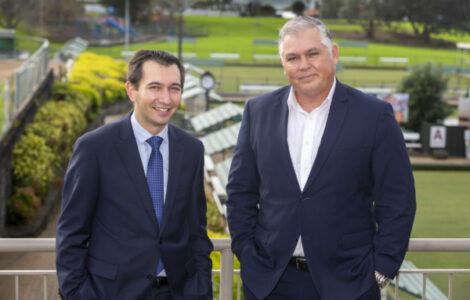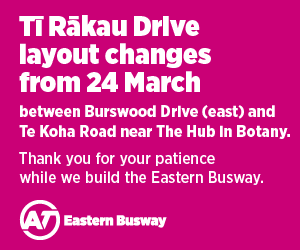
The National Party’s police spokesperson says frontline officers want to crack down harder on gangs but are being hamstrung by a Government that wants fewer people going through the justice system.
Whangaparoa MP Mark Mitchell spoke to party members and the Times about law and order issues during a recent visit to east Auckland hosted by Pakuranga MP Simeon Brown.
A former police dog handler before entering Parliament, Mitchell says the public want more done to address the spate of shootings across Auckland, numerous ram-raid burglaries of retail stores, and the growing presence of gangs in the community.
He says the Labour Government’s policy of reducing New Zealand’s prison population is one driver of rising crime rates.
“That’s an admirable goal to have, but unless you’re rehabilitating people and they’re joining society in a positive way, all you’re doing is pouring fuel on a fire that was starting to burn and we could see that in the last three or four years.”
Mitchell says there’s been a substantial increase in gang numbers since Labour was elected.
The gangs operating in New Zealand are exhibiting a “new level of sophistication, organisation and violence”, he says.
“That was introduced by the 501s [deported from Australia], but we already had a big gang problem that existed prior to the arrival of them.
“On top of that you’ve got gun reform that really didn’t take the guns out of the hands of people we needed to.
“We ended up with gang members who are well armed, and the worst part is it’s obvious they’re prepared to use them.
“It draws it all to a head where in Auckland we experienced, over those 14 days, 23 drive-by shootings.”
Mitchell says the National Party describes Labour as being “soft on crime”, a description the Government rejects, because of its policies which in his view have resulted in the “levels of lawlessness we’re currently seeing”.
“The message from the Government to police is they want fewer people arrested and coming into the criminal justice system.
“Most people join the police because they want to keep their community safe.
“They feel like they’re doing their job with one arm tied behind their back at the moment.”
Mitchell says National called four years ago for a dedicated taskforce to be established to “meet the growing rise in gang numbers and gang violence”.
Should he serve as police minister in a future National Government the first thing he’d do is travel around the country to meet with as many frontline officers as possible, he says.
“I would send them a very clear message we support them, we’ve got their back, and they should feel empowered to go out there and do their job.
“They’re the only agency we have that has the training and the powers to be able to tackle gangs and serious crime in our communities and of course we’d back that up by passing legislation quickly that gave them additional powers.”
Mitchell inherited National’s police spokesperson role from Brown, who says the country needs a Government that’s going to “prioritise the safety of all New Zealanders”.
“I’m grateful Mark has come out here to Pakuranga to show that and to demonstrate what he’s going to do and I know he’s not going to be someone who sits on the sidelines.”
The Government recently announced a raft of new powers to enable police to tackle gangs.
They include new targeted warrant and additional search powers to find and seize weapons, expanding the range of offences where police can seize and impound vehicles, and making a new offence of discharging a gun with intent to intimidate which carries a sentence of up to five years in prison.
Police and other enforcement agencies will be able to seize cash over $10,000 when found in suspicious circumstances, and jewellery and other items will be added to a list of high-value goods banned from sale for cash over a specific value.









